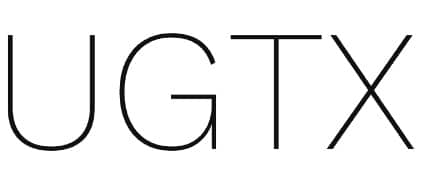Finding a suitable manufacturer is one of the essential parts of the product development lifecycle. The first step involves incorporating new design, prototypes creation and selecting a manufacturer for your product.
Many product companies claimed that sourcing and choosing a reliable manufacturer could make or affect the success of your product. To provide balance in choosing a firm that will accomplish the quality product and management, which includes minimum order quantities, shipping and timelines is a difficult process faced when developing a new product.
Here are some guidelines on how to identify and find reliable suppliers.
Choose a manufacturer suitable for your product
You can choose from many factories and checking factory referrals is a great place to get started. Firstly, you have to contact the companies with similar products and ask them for the manufacturer recommendation. This is the best way to learn more about them from someone in the same position.
Usually, your main goal is to identify a few manufacturers that meet your product description, to investigate further, you can consider the following questions:
1. Are you concerned about domestic or foreign products?
The answer to this question varies, there are advantages and disadvantages to each. It also depends on your product description. Regardless of the product type, you will need to consider other options such as speed, balance cost and quality. Additionally, identify your needs; products with assembly will not be expensive abroad because labor rates are lower, but the main concern is the cost of the shipping crate. You also need to consider shipping and other duties.
2. Are you willing to work with agent/broker or directly work with the factory?
It depends, working with factory directly will reduce cost, and you are more involved in the process. If you choose a broker or agent, you may not get involved, but you will be working with a specialist with an important relationship in the factory.
3. Are they going to meet the compliance and regulatory product requirement?
Currently, the regulatory world of compliance is changing. Due to this, you need a manufacturer that meet all the requirements changes and can assure that your product will meet the compliance standards.
Before selecting a manufacturer to consider the logistics
After identifying a few manufacturers you are interested in working with, take a closer look at the logistics aspects to find a factory that meets your needs. The best way is to contact the manufacturers to get more information before you send a request for quotation (RFQ). You can also consider the following questions:
4. Which type of companies can you work with?
Most times, you need to choose a manufacturer working in similar companies. For instance, if you are a large organization with a keen interest in household appliances, you will prefer a factory that tends to work with large companies specializing in home appliances. If you are an entrepreneur producing a tech product, you will prefer a factory that creates a new tech product. Ensure that it is a good fit by looking at the reviews or feedback of previous customers.
5. Are you willing to sign the Non-disclosure agreement or Triple Net Lease?
Generally, intellectual property theft is rampant aboard. If a factory is not ready to sign the non-disclosure agreement or triple net lease, don’t hesitate to remove them from your list. It is also possible for your product to get leaked regardless of the non-disclosure agreement or Triple Net Lease. A patent filed in your primary market will give you some advantage against internal frauds.
6. Who is responsible for the shipping process?
If a factory that you are interested in doesn’t manage shipping of the final product to the U.S, this is not a good deal because you will have to contact a shipping company. You can ask the factory if they have shipping partners or search online for logistics companies. You can also call a port to get more information.
Please note: This is the stage where working with a sourcing professional is essential. Our sourcing team can assist you in finding a reliable shipper, paying duties, getting the products through customs and ensuring that you don’t end up paying fines.
7. What is your minimum order quantity (MOQ)?
There is no constant number, but keep your profit margins in mind. Whether you want to sell all the units, you still have to pay for your order. It is common to see price exceeding the higher volumes, so it is essential to make inquiries in regards to the volume to reduce cost.
8. What is your sample price?
Many factories offer a sample of existing products provided you pay the customs and shipping costs. Regardless of this, ensure that you are comfortable with the manufacturer’s sample price structure before dealing with them.
Please Note: The pricing of a custom product requires a customer pay between 50-100% for tooling.
9. What is your delivery time?
If you want an order on a specific date, ensure to find a manufacturer that can deliver within the timeframe. Always consider the shipping process as well. If it is first-order with a brand new product or a new factory, allow more time for your shipping date. Luckily, a small partial shipment can be extensive compare to the boat shipment in efficiently delivering small orders or samples.
10. What are the payment options?
Many factories require an initial payment before a preproduction process. The tool deposit is 50%, and completion process is 50%. Also, if a factory request for 100% or complete payment upfront, this could be suspicious.
11. How to tackle delays?
Orders will inevitably arrive late in some situations. But what happens then? Usually, the factory would be active when it comes to preventing delays, and the agreement would involve a penalty clause that can be handled comfortably. Also, this can be hard to enforce with vendors aboard. It can be challenging to negotiate a penalty clause if the MOQ is not substantial.
